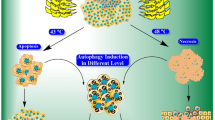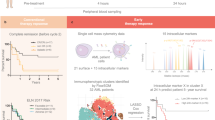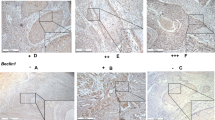Abstract
The role of sphingomyelinase (SMase) activation and mitogen activated protein kinases (MAPKs) activation in cellular apoptosis was investigated during the hyperthermic treatment of HL-60 human leukemia cells. Treating the cells for 1 h at 43°C caused more than 50% of cellular apoptosis within several hours. The neutral-SMase activity in the cells treated for 1 h at 42°C was slightly increased but decreased in the cells treated at 43°C or 44°C for the same period whereas the acid SMase activity was slightly increased after heating the cells at 42°C and 43°C and markedly increased at 44°C for 1 h. Treatment of cells with inhibitors of SMase activation and ceramide formation significantly reduced the heat-induced apoptosis. Three major families of mitogen-activated protein kinases (MAPKs) i.e. ERK1/2, p38 and JNK, were activated by the hyperthermic treatment of cells. Inhibition of ERK1/2 with PD98059 exerted little effect on the heat-induced apoptosis and p38 inhibition with SB203580 slightly lessened apoptosis whereas, inhibition of JNK with SP600125 markedly suppressed the heat-induced apoptosis. These results indicate that heat-shock induced the activation of SMase, particularly acid-SMase, thereby causing apoptosis and that JNK played a pivotal role in heat-induced apoptosis in HL-60 leukemia cells.
Similar content being viewed by others
Article PDF
Author information
Authors and Affiliations
Rights and permissions
This is an Open Access article distributed under the terms of the Creative Commons Attribution Non-Commercial License (http://creativecommons.org/licenses/by-nc/3.0/) which permits unrestricted non-commercial use, distribution, and reproduction in any medium, provided the original work is properly cited.
About this article
Cite this article
Chung, H., Park, S., Choi, E. et al. Role of sphingomyelin-MAPKs pathway in heat-induced apoptosis. Exp Mol Med 35, 181–188 (2003). https://doi.org/10.1038/emm.2003.25
Published:
Issue date:
DOI: https://doi.org/10.1038/emm.2003.25
Keywords
This article is cited by
-
Acid sphingomyelinase activity as an indicator of the cell stress in HPV-positive and HPV-negative head and neck squamous cell carcinoma
Medical Oncology (2018)
-
Decreased glutathione levels potentiate the apoptotic efficacy of selenium: possible involvement of p38 and JNK MAPKs—in vitro studies
Molecular and Cellular Biochemistry (2008)
-
Raft ceramide in molecular medicine
Oncogene (2003)



